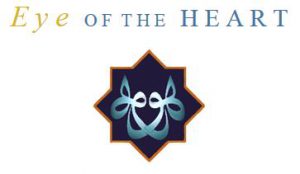
THRESHOLD SOCIETY NEWSLETTER ~ NOV 2017
***
The True Dimensions of the Divine
Shaikh Kabir Helminski holds a Sufi teaching “friendly conversation with a purpose” at SAND16 conference last year. In answering questions, Shaikh Kabir outlines the Seven States of “I-ness” and many other Sufi principles.
***
On Zhikr
~ Hamida Battla [Florida, USA]
 I have suffered from anxiety with panic attacks most of my life. Panic attacks are an exaggerated flight and fight response to an unimportant, silly outside stimuli or negative thought patterns. The sympathetic nervous system stays in over-drive mode. Its cause is not known.
I have suffered from anxiety with panic attacks most of my life. Panic attacks are an exaggerated flight and fight response to an unimportant, silly outside stimuli or negative thought patterns. The sympathetic nervous system stays in over-drive mode. Its cause is not known.
My symptoms were a pounding heart and increased blood pressure. It lasted for several minutes. These symptoms may vary in different people. As I grew older panic attacks really started bothering me. My whole body would shake because of my heart banging in my chest so forcefully.
I went on medications which helped some. I tried all kinds of meditation (Deepak Chopra, Louis Hay, and several others) without much help. I tried mental health counseling. I found a good counselor but still the panic attacks continued. Finally I read a short article in the Threshold Society monthly newsletter (Aug 2017) by Shaikh Kabir on zhikr.
I remember reading in the Quran: Surely souls find peace in the remembrance of their Lord [13:28]. I said to myself: I am going to try zhikr because God never breaks His promise.
Lo and behold, after doing zhikr regularly I noticed my over-stimulated sympathetic nervous system started calming down. Things (insignificant and silly) that used to bother me so much and put me into panic mode became remote and insignificant.
I am so thankful to Shaikh Kabir and Shaikha Camille for their insightful article. I am sharing my story as perhaps it may help someone who needs it.
The method of zhikr is as follows:
Zhikr (remembrance of God)
Total time: 1/2 hour
Affiliation required: none (any person from any race, religion, nationality, etc. can do it)
1. Be in a state of wudu (purity) if possible.
2. No fixed time. Pick a time of your convenience when you are not rushed or in a hurry. Try to be consistent with this time.
3. Sit down in a comfortable place (chair, sofa, floor) where you will not be disturbed.
4. Do sacred holding (put your right hand or both hands on your chest at heart level).
5. Start with A’udhu billahi minash Shaytanir rajeem (“I seek the protection of God from accursed Shaytan”).
6. Bismillahir Rahmanir Raheem (“In the Name of God, the Infinitely Compassionate and Most Merciful.”)
7. Recite Surah Fatihah (the first chapter of Quran):
Praise be to God, Lord of all the worlds,
the Infinitely Compassionate and Most Merciful
Master of the Day of Judgement.
You alone we worship and You alone we ask for help.
Guide us to the straight path,
the path of those whom You have blessed,
not those on whom is Your anger or those who are astray.
8. Then recite: Astaughfirullah (O God, forgive my mistakes, shortcomings) 100 times.
9. Recite: La illaha ilallah (There is no deity except the one God) 100 times.
10. Recite: Allah (the Name of God in Arabic) 300 times.
11. Recite: Ya Hu 11 times (Say “Ya” breathing in; “Hu” breathing out).
12. Blow your breath on your hands and gently wipe your hands on your body.
13. Ask God for your needs.
Simple, beautiful, easy.
***
Reflection on October’s theme:
Courtesy costs nothing and buys everything.
~ Imam Ali, may he be blessed.
~ Selim Schaurer [Kendal, UK]
 Sitting with these seemingly simple words, my memory recalls recent encounters with strangers in this new place I’m living and the courtesy they have extended me. As I do I sense a softening in my chest and a warmth pervades my being. I am inclined to see beauty here and respond with gratitude.
Sitting with these seemingly simple words, my memory recalls recent encounters with strangers in this new place I’m living and the courtesy they have extended me. As I do I sense a softening in my chest and a warmth pervades my being. I am inclined to see beauty here and respond with gratitude.
Surveying the multitudes of encounters during my three weeks here: pleasantries with shopkeepers, directions taken from taxi drivers, longer conversations with a waitress, a bit of humor, I realize that one aspect of courtesy is a sympathetic connection, not in the meaning of pity but of a shared moment of agreement. Yes, there is also respect in courtesy and, too, a willingness to hear another’s opinion even though it might contradict ours, or a deferring to their needs. But by and large Imam Ali is right, it “costs nothing” in concrete terms and yet what is received is precious. It invites you to respond in kind. When he says it “buys everything,” I take that to mean there is an exchange of more than is visible, something of inestimable value. Freely given it perhaps opens “the window that is surely between heart and heart” and what crosses that transparency is the light of acknowledgement, respect, and even understanding.
Of course we who nominally follow the dervish path understand courtesy as an aspect of adab, a core value and agent that maintains our community and provides the polish to our hearts. There can be an expense in this “cost nothing” action and that is of our self-importance, adherence to opinions, and slavery to time, etc. This is a secondary gain and as dervishes we understand the value of that. Every meeting, every kindness shown, every communication is a transaction. I can almost hear Camille Ana saying, “In God’s name, in God’s name, sell and buy at once! Give a drop and take this sea full of pearls.”
Again Imam Ali’s short sentence opens me now beyond the formality of good manners and courtesy to deeper levels of “being,” to the Living Presence in all form. In this land England, that once embraced the ethic of chivalry, I am reminded of the refined behavior that surrounded the court, and am not surprised it entered the language in “courtesy.” One of the archaic definitions of courtesy is curtsy, a kind of bow. Behind the formality of court behavior the code of chivalry was a moral path to express love through the earthly to the heavenly, leading to piety and required training, presence and the expression of will.
The Quran says,
Never shall you attain righteousness unless you spend on others
out of what you yourselves truly love;
and whatever you spend—certainly, God knows.
[3:92]
What do we truly have to give of what we love? How do we wish to be treated? In the material world, is that not with generosity? Is that not also true in the world of qualities? And there must be at least 99 of them or more. I invite you to consider what is on your list.
Lastly, in this short rumination on adab , let me quote our Pir, Hazreti Mevlana, from chapter 23 of the Fihi ma Fihi:
When Adam sinned, God most High expelled him from Paradise. God most High said to Adam, “Oh Adam, when I egged you on and urged you to commit that sin why did you not dispute with Me? After all, you had a perfect case. You did not say, ‘All things proceed from Thee and Thou madest all. Whatever Thou desirest in the world comes to pass and whatever Thou desirest not will never come to pass.’ You had such a right and clear and valid case, why did you not argue it?” Adam answered, ‘I knew well, Lord. But I did not forget my manners in Thy presence and Love did not suffer me to reprove.’
Selim is a very recent eastern migrant to the UK from the uncivilized coast of California. He came of age in the cultural revolution of the 60s and attended the University of California at Berkeley. His travels have passed through the Gurjieff Work in Paris and San Francisco; Native American sweat lodges and medicine circles; Jungian thought and post Jungian studies with the World Work community before finding the path Home in the Mevlevi tradition.
***
November Theme
Be kind, for when kindness is part of something it beautifies it; and
when it is removed, it tarnishes it. ~Hadith
We welcome your reflections on this theme.
***
SACRED PATTERN
Balancing the Divine Feminine & Divine Masculine
within ourselves, within our world
Nov 10-12th ~ Kendal, UK
With Beth Hin, Shaikh Kabir, Rahima McCullough, Mahmoud Mostafa, and friends
Book now at rumiscircle.com

image by Irina Naji
It seems evident that deep respect and harmony between the masculine and feminine principles of existence is necessary for the well-being of individuals and society as a whole. We recognise that our spiritual heritages offer much guidance as to how we might authentically manifest these principles, yet we recognise that cultural and socially mandated “norms” concerning gender can often hinder genuine self-discovery and expression. We trust that human beings can be free to discover and determine for themselves how to manifest and express the Divine Feminine and Masculine, and that what might generally be described as masculine can be within the realm of the feminine and vice versa.
Rumi’s Circle began this conversation in 2016 by honouring the feminine aspect of the Divine. We were driven by a concern both for the degradation of the Divine Feminine and the imbalance we perceive between the masculine and the feminine in the wider world. We are now continuing the conversation by exploring the Divine arrangement of the patterns in nature and in ourselves that show the integration of the feminine and masculine principles.
Join us to experience diverse spiritual practices that bring us to balance and wholeness, including work with prayer, meditation, sound, breath, and movement.
The weekend begins on Friday at 7:30pm and ends Sunday at 5pm.
Quaker Meeting House, Stramongate, Kendal LA9 4BH, UK.
Registration is £140. Book now at rumiscircle.com
***
Rumi’s Urs
Dec 15 & 17 UK Celebrations
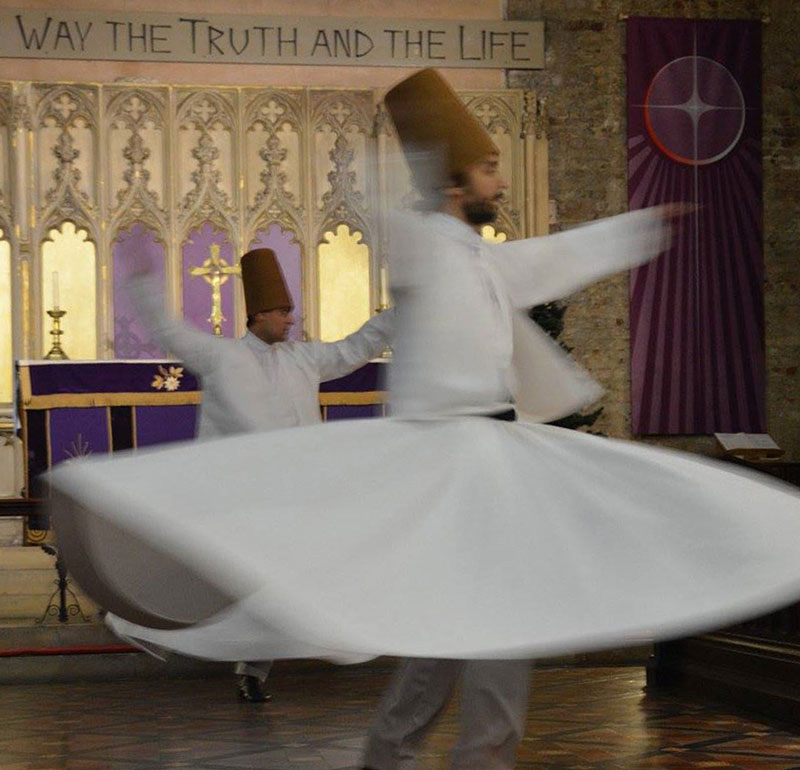
Rumi’s Circle with Mevlevi whirling dervishes from The Threshold Society are pleased to announce the 2017 celebration of Mevlana Rumi’s Urs, the anniversary of his union with the Beloved.
Join us for an evening of poetry, whirling and zhikr.
Fri 15th Dec: Bradford
Sun 17th Dec: London
More details on venue and tickets shortly – check rumiscircle.com or Facebook.
***
SAND17 Closing Ceremony
The SAND17 USA closing ceremony. A touching closing moment in which the human mandala unintentionally even took the shape of a heart… Set to Shaikh Kabir’s reading from Rumi.
***

Threshold’s collaborative blog channel The Living Tradition on Patheos.com is reaching new audiences and sharing the experiences of our community in a unique and vibrant way.
Let us know what you think by commenting on the posts — join the discussion at www.patheos.com/blogs/livingtradition and “follow” The Living Tradition.
Recent articles:
Lessons from the Sufi Kitchen by Anna Rohleder
Bob Dylan and the Beloved by Daniel Thomas Dyer
***
Recent Publications
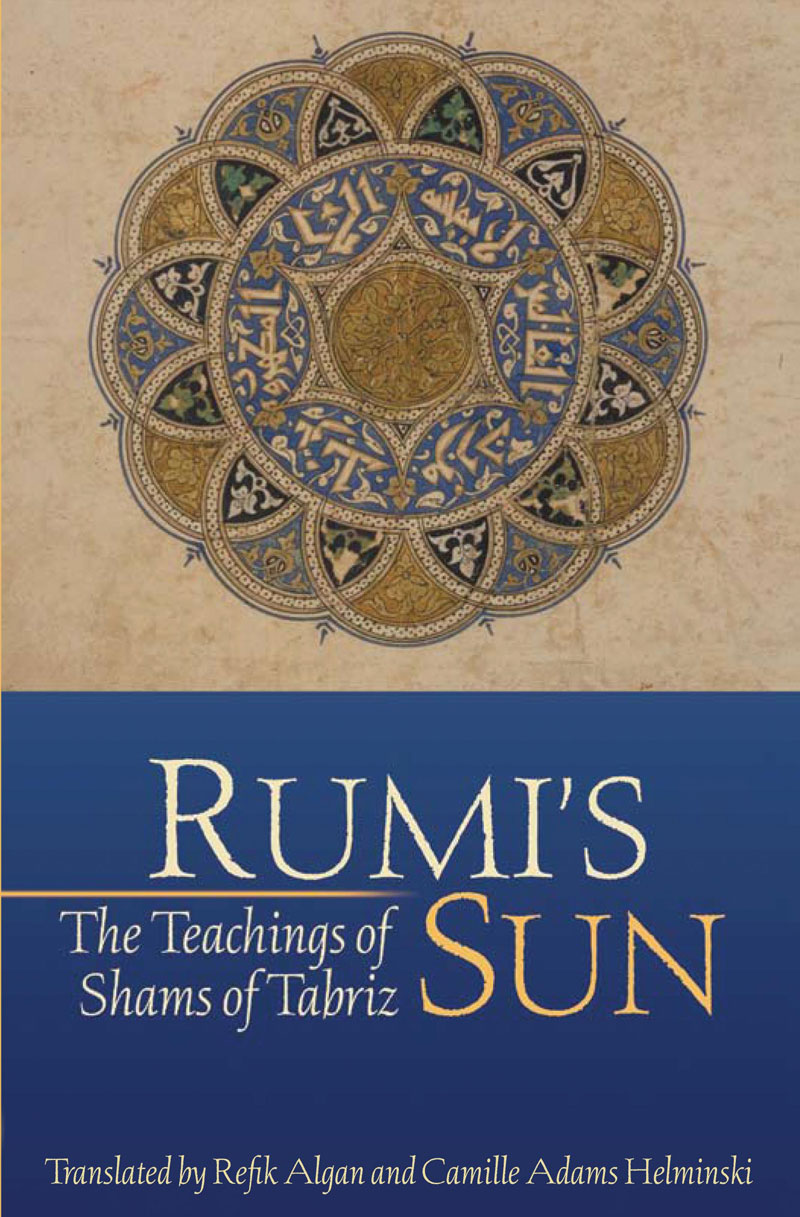
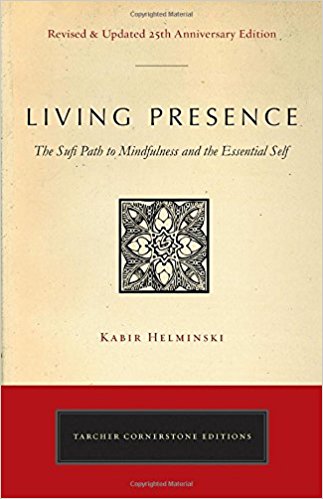
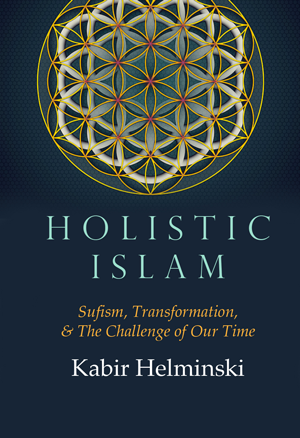
We encourage you to leave reviews on Amazon.
***
Calendar
Nov 10-12: Kendal, UK. Sacred Pattern in the Feminine & Masculine, with Beth Hin, Shaikh Kabir, and friends. Registration now open: book now. (K)
Feb 23-25: California, US. Annual San Francisco retreat. Hope & Beauty: book now. (KC)
Events with Sh. Kabir and Sh. Camille marked (KC)
***
October in California
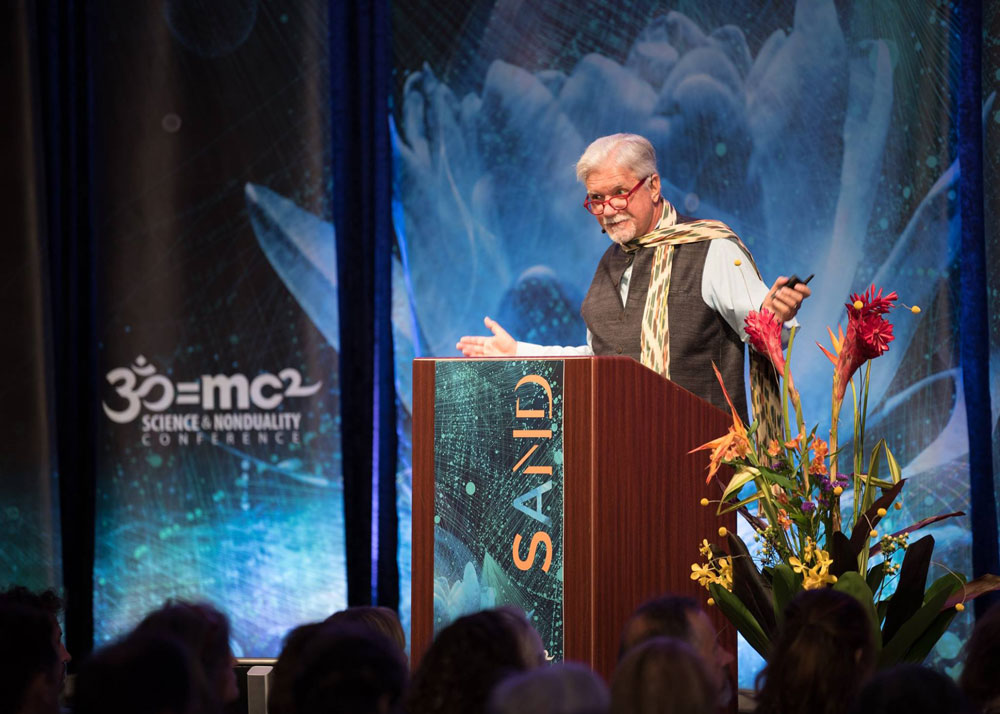
Shaikh Kabir presenting at SAND17
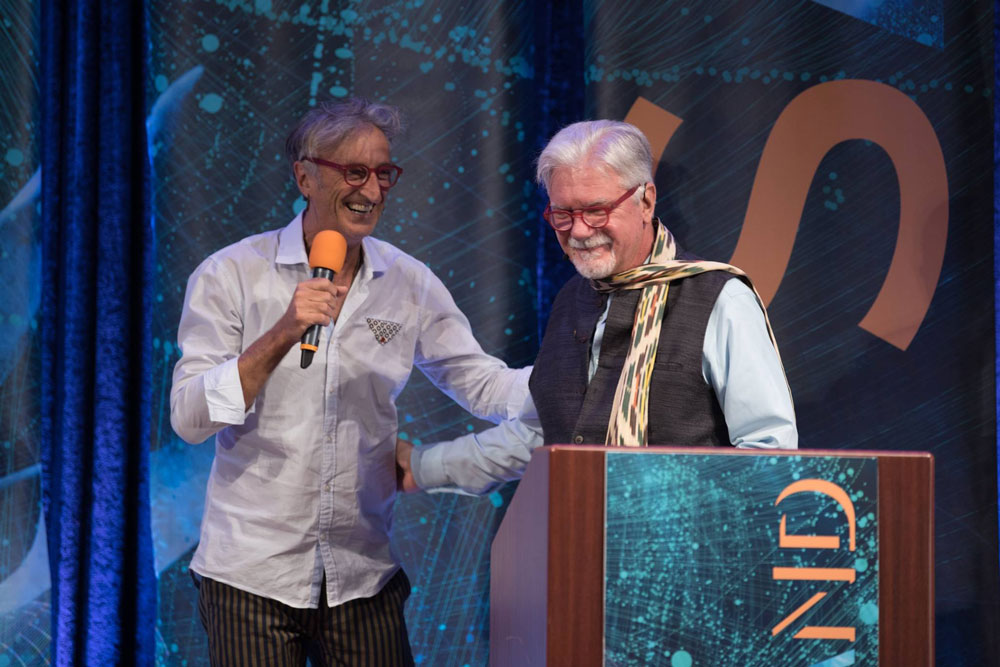
Shaikh Kabir and Maurizio Benazzo, co-founder of SAND

Threshold California
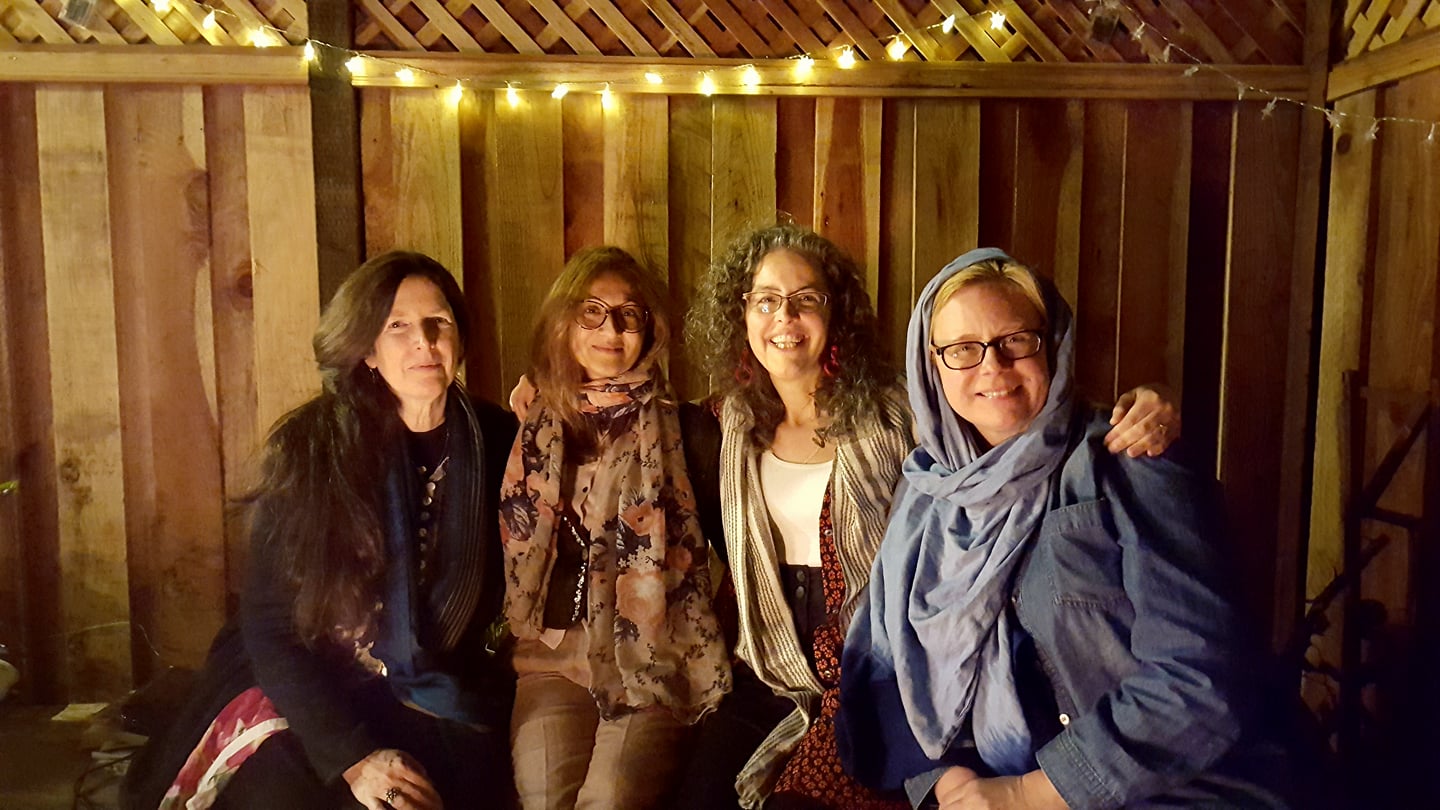
***
Al Latif, The Infinitely Subtle One
~ from Ninety-Nine Names of the Beloved
by Camille Hamilton Adams Helminski
publishing mid-November 2017
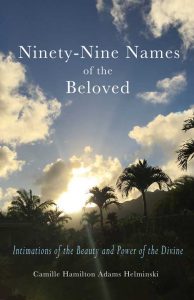
Ya Latif, Ya Khabir, Ya Nur
Beloved One,
heal our ills—
each one of us
has a journey
toward greater health
with You.
Listening deeply
to Your songs—
vibration redirects;
our neuropathways realign.
Empty of our own recordings
we turn afresh
to the silence
that holds all sound,
and wait
for Your whales and dolphins
to share their chants
from underwater realms
in the vast Sea
of Your Being.
Beloved friends gather
in the sunshine
by the shore,
where air meets water
and earth
and Your messages arrive
with the tides
within our hearts—
we smile,
enlivened
by Your sweet radiance,
Ya Latif, Ya Khabir,
Ya Sami, Ya Basir,
Ya Quddus,
Ya Nur
al samawati wal ard,
and truly this
is a message
for all the worlds.
Inner and outer
dance in Your Love,
O Most Subtle of Mysteries,
Ya Latif, Ya Wadud.
Ya Latif, O Most Mysteriously Subtle in Presence and Gently Kind,
Ya Khabir, O All Aware,
Ya Sami, O All Hearing One, Ya Basir, O All Seeing One,
Ya Quddus, O Most Holy and Pure,
Ya Nur al samawati wal ard, O Light of the heavens and the earth,
Ya Wadud, O Infinitely Loving One
And whether you hide your word or declare it,
He/She certainly knows the secrets of hearts.
Should He/She not know, He/She Who created?
And He/She is the Most Subtle, and the One Who is Aware of Everything.
[67:13-14]
Truly, my Sustainer is Subtle Beyond Comprehension in whatever He/She wills:
truly, He/She alone is All Knowing, Truly Wise!
[12:100]
“O my dear son, truly, though there be anything
of but the weight of a mustard-seed,
and though it be hidden in a rock, or in the skies, or in the earth,
God will bring it to light:
for, behold, God is Subtle in Mystery, All Aware.
O my dear son! Be constant in prayer, and enjoin the doing of what is right
and forbid the doing of what is wrong,
and bear in patience whatever may befall you:
this, behold, is something upon which to set one’s heart!”
[31:16-17, prayer of the Prophet Luqman]
Say: “I follow what is revealed to me by my Sustainer—
this revelation is a means of insight from your Sustainer,
and a guidance and grace to those who will have faith.
And so when the Quran is voiced, pay attention,
and listen in silence, so that you might be graced with God’s mercy.”
And remember your Sustainer humbly within yourself and with awe,
and without raising your voice, in the morning and in the evening;
and don’t allow yourself to be unaware.
[7:204-205]
God alone is the Most High, the Most Great!
Aren’t you aware how the ships speed through the sea by God’s favor,
so that He/She might show you some of His/Her wonders?
Herein, behold, there are messages indeed
for all who are wholly patient in adversity and deeply grateful.
[31:30-31]
God is the Light of the heavens and the earth.
[24:35]
This is no less than a reminder to all the worlds.
And after a while you will know its meaning.
[38:87-88]
To everything there is a season,
and a time to every purpose under heaven.
[The Bible, Ecclesiastes, 3:1]
***
We’d love to hear from you – get in touch at eyeoftheheart@sufism.org
***
Find out how to support the work of Threshold Society.
***
Receive this newsletter by email: sign-up here.

